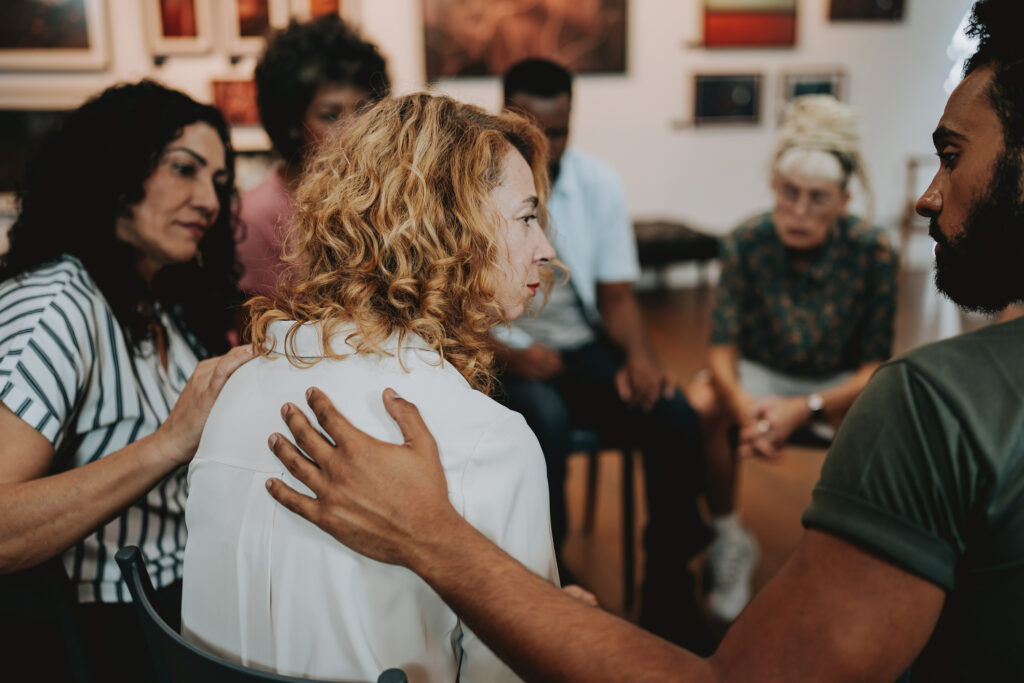Every parenting journey is unique, and finding out your child has a developmental and genetic condition can spark important steps toward getting the right support and resources. As parents, you may experience feelings of isolation, fear, and uncertainty as you navigate the complexities of developmental and genetic conditions. In such times, peer support groups can be a game-changer. These groups provide a powerful sense of community, guidance, and understanding, helping parents not only cope but thrive as they care for their child.
What Are Peer Support Groups?
Peer support groups bring together individuals who share similar experiences. For parents navigating developmental and genetic conditions in their children, these groups can be an invaluable resource. Members offer emotional support, share coping strategies, and exchange practical advice based on their own journeys. Peer support groups are not just about listening – they are about actively helping each other through the ups and downs of caring for a child with a genetic condition. It’s often beneficial if these groups are well-moderated, which can help ensure information shared is constructive and discussions remain supportive.
Research indicates that peer support groups can have a significant positive impact on parental mental health. A study conducted by the Patient-Centered Outcomes Research Institute (PCORI) evaluated the effectiveness of a parent peer support program for families of children requiring mental health services. The findings revealed that parents participating in these peer-led groups experienced reduced stress levels and improved confidence in managing their child’s care. The study underscores the value of shared experiences and mutual support in empowering parents and improving family outcomes.
Emotional Support in Challenging Times
One of the most powerful aspects of peer support groups is the emotional connection they offer. Parents often feel like they are the only ones going through the difficulties of raising a child with a developmental and genetic conditions. Peer groups break down these barriers, allowing parents to connect with others who truly understand. Whether it’s the fear of a new diagnosis or the stress of medical appointments, hearing from someone who has walked the same path can be incredibly reassuring. For example, imagine the profound comfort in sharing your anxieties about an upcoming surgery with another parent who has been through it and can offer gentle reassurance and practical tips for the hospital stay.
Information and Resources Sharing
Peer support groups also provide a wealth of information and resources that parents might not find through traditional healthcare providers. Members often share useful tips on everything from medical treatments and therapies to educational resources and financial assistance programs. This sharing of knowledge can help parents feel more in control of their situation and better equipped to make decisions for their child’s care.
For instance, in some developmental and genetic disorder support groups, parents can learn about the latest research, clinical trials, or new treatment options that they might not have been aware of. One parent might share their experience navigating the complexities of an Individualized Education Program (IEP) for their child, offering invaluable, practical advice, while another might provide a lead on a little-known financial aid program. Additionally, they can hear about others’ experiences with specialists, helping them navigate the sometimes confusing healthcare system more effectively.
Building a Strong Support System
Having a reliable support system is crucial when navigating developmental and genetic conditions. Peer support groups offer exactly that – a network of people who care, understand, and are willing to help. This network can be a lifeline, offering everything from practical advice to a safe space to express your fears and frustrations without judgment.
Overcoming Isolation and Finding Strength
Parents of children with developmental and genetic conditions often feel isolated, particularly if the condition is rare or not well-known. Peer support groups help combat this isolation, reminding parents they are not alone. Knowing that others are walking the same path can be a source of great comfort.
Additionally, the act of helping others within a support group can also be therapeutic. Sharing advice, offering support, and even just listening to another parent can create a sense of purpose and connection, which fosters resilience. By supporting each other, parents build strength and gain the confidence to face the challenges ahead.
How to Find the Right Peer Support Group
Finding the right peer support group for your family may take some time, but it’s worth the effort. You might begin by asking your child’s pediatrician or specialist for recommendations. Many national and international organizations, such as the National Organization for Rare Disorders (NORD) or condition-specific foundations (e.g., Cystic Fibrosis Foundation, Muscular Dystrophy Association), list or host support groups. Online platforms, including dedicated forums and carefully vetted social media groups, can also be valuable resources.
When searching, it’s important to recognize that not all groups are the same, and finding a good fit is key. Some groups are large and diverse, others small and specific. Some are professionally moderated, which can be beneficial for maintaining a focused and supportive environment, while others are more informal. To find the best fit, consider factors such as group size, the level of involvement you’re comfortable with, and whether the group is moderated by trained professionals. Don’t be discouraged if the first group you try isn’t the perfect match; the benefits of finding the right community are substantial.
The power of peer support groups is undeniable. They provide parents navigating developmental and genetic conditions with emotional support, valuable information, and a sense of community that can make a world of difference. By connecting with others who understand their experiences, parents can thrive, rather than just survive, in the face of challenging circumstances. If you’re a parent dealing with a genetic condition or a developmental disorder, or health issues, consider exploring a peer support group – it could be the first step toward finding the strength and resources you need to navigate your journey with confidence and hope.



